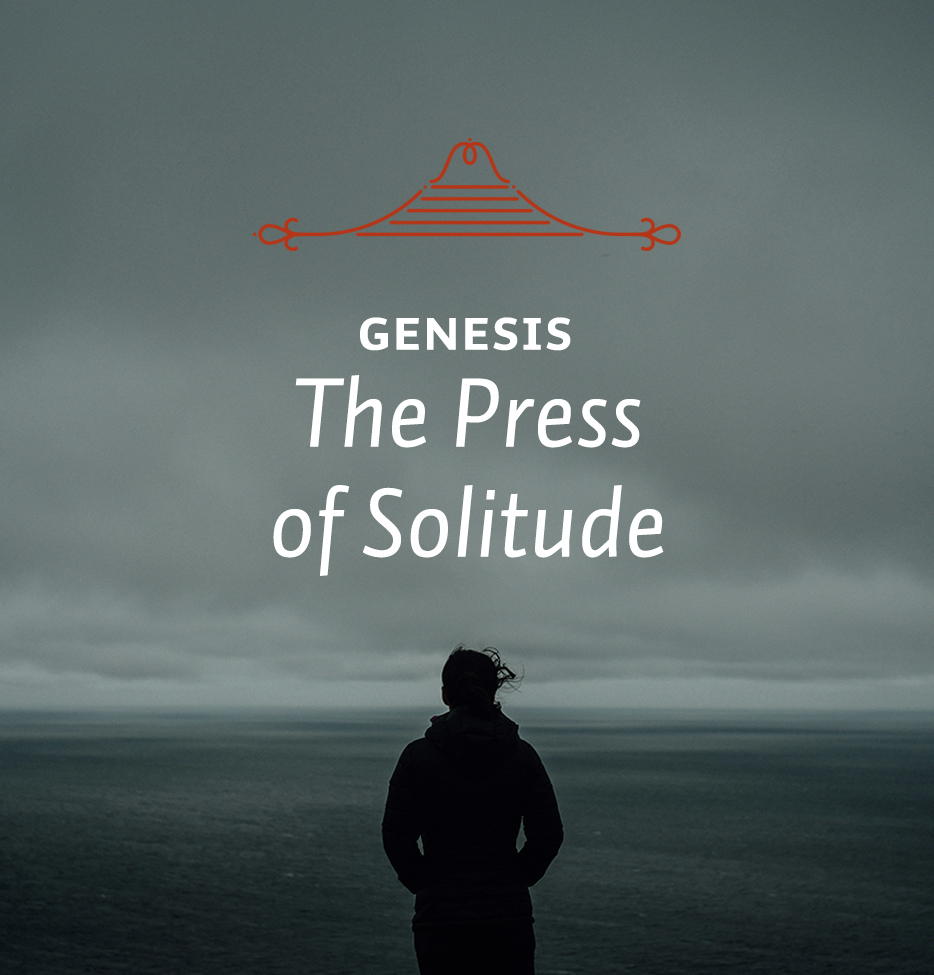The third thing solitude did for these guilty brothers of Joseph was cause them to reason spiritually. They were not godly men. In fact, they were probably not even saved men before the events of these chapters. They did not reason spiritually. They thought as most worldlings do, namely: “It’s a mechanical world; God does not exist, or at least He does not intervene here. In such a world it’s every man for himself, and the devil take the hindmost. Who is to say that I’ve sinned? Who has a right to hold me to an accounting?” Then God did intervene, and suddenly the brothers’ tune changed: “Surely we are being punished because of our brother. We saw how distressed he was when he pleaded with us for his life, but we would not listen; that’s why this distress has come upon us. Now we must give an accounting for his blood” (vv. 21-22).
As I say, before this they imagined that they were in an impersonal, immoral universe. Now with their sin before them, they realize that the universe is moral after all, that it is God’s universe, and that every sin must and will have a reckoning.
We must say at this point that it does not necessarily follow that every calamity of life is directly linked to some act of sin on our part. Some have taught this. In fact, this erroneous idea is reflected even by some of those whose views are in the Bible. Job’s counselors wanted to explain his misfortune by some previous great act of sin. The Lord’s disciples reasoned the same way when they noticed the man who had been born blind: “Rabbi, who sinned, this man or his parents, that he was born blind?” (John 9:2). Jesus replied that, although this is a moral universe, the facts are not always so easy to explain as that: “Neither this man nor his parents sinned . . . but this happened so that the work of God might be displayed in his life” (v. 3). Calamity is not always a proof of past sin. Still, if calamity has come to your life and God has used it (or solitude or whatever) to bring the memory of your wrongdoings to mind, you know that you cannot escape the moral consequences of your sin by a quibble. Never mind that some suffer innocently! Never mind that God works in some suffering merely to bring Himself glory! That is not your case. You see the connection. You know you are guilty. You know that God is not letting you escape unscathed. He is buffeting you to bring repentance.
I speak of the effect of solitude to encourage spiritual reasoning. God uses solitude to “bring us to our senses.” He reminds us of the connection between sin and its consequences.
But this is not the only way God causes us to reason spiritually. He causes us to reason about salvation also, saying, “Come now, let us reason together. . . . Though your sins are like scarlet, they shall be as white as snow; though they are red as crimson, they shall be like wool” (Isa. 1:18). I am sure that as the brothers of Joseph thought about their past sins, those sins rose up before them like a horrible scarlet mass. They saw no hope of cleansing. They saw only a just and terrible retribution for their wrongdoing. It is the same retribution you and I will see if we remain unrepentant. “Sin means death!” That is the first great axiom of Christianity. But God, who brought the brothers to see this spiritual connection, continued to work in them so that in time they freely confessed their sins and found salvation through the atoning blood of Him who was to come. Christ’s blood washed their red sins white. And they became, not merely redeemed men, wonderful as that was, but even revered fathers of the tribes of Israel. Judah, who was among the worst, was the one through whom the Savior came.
You may not have committed the sins Judah or any of these others committed, but you have sins of your own. Perhaps God is bringing them to your mind even now. You need to confess them and find salvation through Jesus, the Lamb of God, who takes away the world’s sin.






